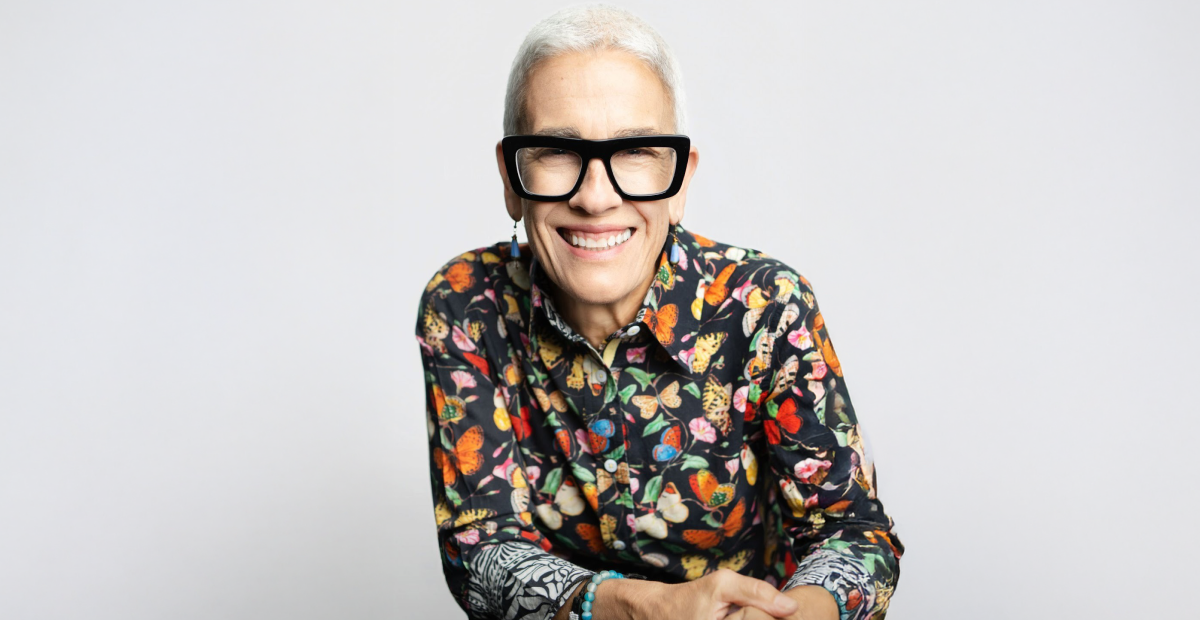With campaigns for the 2024 presidential election well underway, political conversations are happening everywhere — including at work. A Gallup study conducted earlier this year found that nearly half of American workers have discussed political issues with a coworker in the past month, more commonly among on-site employees and those in hybrid work settings.
So what can leaders do when a heated social or political issue causes tension in the workplace? And do companies have a responsibility to provide employee resources in a polarized political climate?
Chief spoke to top business leaders and experts about the role executives can play when partisan hot topics inevitably come up at work — and how they can support employees and facilitate discussions without harm.
Create Brave Spaces
Hope Horner, CEO and founder of Los Angeles-based video production company Lemonlight, says she’s seen firsthand how the stress and anxiety of an election can take a toll on her team, particularly those from marginalized communities or with strong political affiliations. That’s why, rather than moderating conversations as “safe spaces”, Horner says Lemonlight’s inclusion partners have run workshops with the “brave space” framework. This alternative revises the original framework to focus on “the need for courage rather than the illusion of safety” in group discussions about diversity and social justice. Horner calls it one of the most powerful tools introduced to her team.
“Unlike traditional safe spaces, which can sometimes stifle honest dialogue, brave spaces encourage employees to step outside their comfort zones and engage in challenging conversations with empathy and respect,” she says.
A brave space is ideally facilitated in group settings like workshops with ground rules like “respect” and “no attacks,” where team members can share their experiences, broach uncomfortable topics and ask difficult questions in a supportive learning environment. Organizational leaders can become brave space facilitators with a short three- or six-hour workshop led by the framework’s creators, educators Brian Arao and Kristi L. Clemens.
For many leaders, cultivating a brave space at work is far from the norm. In fact, Nicole Nelson (she/they), Brand Experience and Engagement Manager at The Justice Collective, says our conflict-avoidant culture teaches us that we need to manage conflict immediately, leading to the prioritization of “comfort over courage,” group think, lack of trust, and stalled creativity and collaboration as a team. A more effective way to welcome differences, according to Nelson, is to factor generative conflict into your company’s culture and “to create space for diverse opinions in a way that is not only productive, but innovative.”
Build in Five-Minute Check-ins
If you’re not sure what to address or how to hold space for the constant stream of current events, do a temperature check and get input from your team. The Justice Collective, a cultural strategy consulting firm that approaches traditional organizational development with a racial equity lens, has found leaders tend to overthink how to open the dialogue. Nelson says making space for emotions employees may be feeling as they follow the election can be as simple as a five-minute check-in at the top of a meeting or one-on-one to gauge how team members are feeling about “whatever dumpster fire moment we’re going through.”
“Do a quick thumbs up or down, or let them add the emoji that best reflects their mood in the chat (assuming you’re virtual),” they suggest. “Our teams just need to know that we see it, too, and that we’re trying to figure this all out together.”
While election season can stir up a lot of emotions, Nelson points out that hot-button social issues have always existed, and they usually impact marginalized groups the most. To support members of these communities, The Justice Collective offers cultural assessments, coaching and training, equity advising, and trauma-informed practitioners to “lead teams through conversations about the historical and cultural implications of how we live and work today, how persistent and pervasive systems of oppression are, and how individuals and organizations can make meaningful shifts toward equity."
Align with Company Values
With so much at stake on the ballot — including women’s rights, affordable healthcare and education, immigration, gun control, the Israel-Gaza conflict and the ongoing hostage crisis — it’s hard for leaders to decide which issues they should prioritize and address.
Nelson says if a topic feels divisive, get clear on why. The team at The Justice Collective leads with radical empathy and relies on indigenous knowledge, or “wisdom from academia and our Indigenous and Black liberatory predecessors,” Nelson explains, citing the indigenous framework of interconnectedness instead of division as an example.
“As leaders, it is our responsibility to understand what biases, narratives, and beliefs we carry with us that have us oriented to believing that speaking out on social [and] political issues is risky because of the perceived divisiveness,” she says.
While it’s true that many topics can cause conflict and tension, the best way for leaders to bridge that gap is to educate themselves on the issue and gain a more nuanced understanding for both opposing viewpoints. From there, leaders can make an informed decision on whether the issue aligns with their company’s values and if they can authentically speak on the topic in a way that feels true to their employees and public stakeholders.
Assign a Trained Facilitator
When conflict arises, determine who is qualified to manage or mediate. Some conflicts can be handled internally, says Nelson, but it depends on the conflict and the mediator.
For politically charged conversations that can cause harm to specific marginalized groups, Nelson advises companies not to facilitate these conversations themselves if there isn’t an internal team leader or HR staffer appropriately designated, trained, and compensated to handle such issues. Instead, companies should outsource to a credentialed expert. Qualified facilitators can have a diverse range of degrees, certifications and backgrounds as mediators, arbitrators, educators, and HR practitioners across law, government, unions and the public sector. The Justice Collective’s senior consultants are trained teachers, facilitators, conflict mediators, trauma-informed coaches, organizational strategists, and researchers who bring diverse lived experiences and work with company leaders to create more equitable workplaces for everyone.
At Lemonlight, Horner says that bringing in inclusion consultants has specifically been a game changer for her company’s culture, leading to brave dialogue, and improvements in employee engagement and retention.
“We've had more open and honest conversations about issues like race, gender, and mental health, which has fostered a greater sense of trust and belonging across our team,” she says.
These conversations, Horner adds, have also helped the company lead by its brand values and produce work that represents the diverse audiences at the center of political conversations that are often amplified during an election season.
“We've been able to attract a wider range of clients and tell more inclusive stories, which feels both creatively fulfilling and socially responsible.”
*Editor's Note: This piece has been updated to better factually represent the current conflict between Israel-Gaza and the hostage crisis.



